
I know, just mere days before Christmas! And if you’re on the verge of panicking because you don’t have a concrete plan for Christmas dinner yet, well, we might have a solution for you – roast turkey! And before you go doubting yourself, keep reading because you’ll see, it’s not complicated. All you need is that bird, turkey seasoning, and a bit of patience! With the right spices for roast turkey, you’ll be able to make an impressive, unique dish for your next big dinner.
Having a beautiful (and preferably juicy) roasted turkey on the table, especially during festive occasions like Christmas, is no doubt pretty impressive. And again, even if you’re a newbie at cooking, you can still pull it off. Envision it – after you are done preparing the turkey and you have popped it in the oven, you can then start preparing the rest of the dinner menu while you wait for the bird to cook!
Okay, then, first thing’s first. Get the turkey. If you can source them fresh then good for you. If frozen ones are the only option, then don’t fret – it’s absolutely fine, too. You may want to check out these websites and see if they can get you one in time for Christmas. It’ll be great if they can just have it delivered to your doorsteps so you can keep working on your dinner plans.
Just keep in mind that you will have to thaw your frozen turkey for 24 hours per every five pounds, so if you’re working with a really big one, you’ll need more time to thaw it. If you think your turkey will need a little help thawing then simply wrap it and submerge it in water for about 30 minutes. Change the water after that and then repeat the process every 30 minutes.
Now decide if you’re going for dry or wet brining. With dry brining, a salt-spice mixture is rubbed all over the turkey, and then it’s left for a good 21-72 hours to marinate. I know that’s a pretty long time and with time constraints you’ll have to do with what you can. You’ll notice though that the turkey’s skin is particularly crispy with dry brining. Wet brining on the other hand involves submerging the bird in a flavorful salt solution for 12-24 hours (yes, you’ll need a big container that can fit your bird and brining solution!). Turkey is noticeably more succulent and moist with wet brining, however, the skin is less crisp than those that are dry brined.
Okay, now, as to how long to roast? Approximately 20 minutes per pound. So it will really depend on how big your turkey is. You’re going to need your trusted meat thermometer (no worries, even the pros use one!) to check the doneness of your bird. It should read 165 degrees when inserted into the thickest part of the thigh. Be careful not to hit the bone. If you did, retake the temperature to get a more precise reading.
You’ll have to give it time to rest, say about 30 minutes. Resting your meat is important, otherwise, you’ll end up with really dry meat. While your turkey is resting, you can then proceed to make the gravy. Talk about time management, right? Well, if you really want to nail your Christmas dinner, you’ll have to pull off some serious time management skills here! By this time, other side dishes and desserts should be ready (supposedly done while your bird is cooking in the oven, right?).
If you’re feeling a little antsy, then go for side dishes that you can either make or prepare ahead of time. That way, you lower the chance of getting overwhelmed on the day itself. Know which part of the dinner plan you’ll be needing help with or if you would rather do it yourself (I know! Sometimes, especially the little helpers are not exactly helpful, lol!), then simply have them busy doing something else.
So, are you ready to give roast turkey a shot? Okay, then, let’s work on how we’re going to flavor up that bird! It’s a good thing that turkey pairs really well with both sweet and savory flavors. This means that there’s a lot of room for you to work with. You can try a lot of different spices combinations and seasonings to add flavor to your turkey.
It’ll be great if you can try the spice combo or recipe first beforehand which will allow you to make necessary adjustments if needed. But if you’re really in a time crunch, proceeding with caution will be just fine (meaning study the recipe and really learn the steps – now is not the time to improvise, it’ll be better to just follow the instructions and pay attention to tips given in the recipe.).
So, are you ready? Let’s start you with this list of 11 spices for roast turkey with accompanying roast turkey recipes. See which one do you think you can pull off and the one you would likely enjoy with the rest of the family this coming Christmas dinner.
- Related: Spices for Corned Beef
- Related: Spices for Beef Stew
Spices for Roast Turkey (With Pictures!)
Cinnamon sticks

Cinnamon has a sweet and woody flavor with a slightly citrusy note and spicy taste. It does contain medicinal and soothing properties. Its cinnamaldehyde, the essential oils contained in the bark, actually has anti-viral, anti-bacterial, and anti-fungal properties. Cinnamon may help in reducing the risk of cardiovascular disease, treating chronic wounds, and preventing Alzheimer’s disease and multiple sclerosis.
The cinnamon sticks in this spice rub really add to the festive aroma. This one will surely leave your house smelling really Christmassy, what a way to set the mood, right? The cinnamon blends really well with the other warm spices. The lemon and herb butter, on the other hand, provide the touch of freshness that balances the overall flavor.
Allspice

Allspice has a slightly sweet and spicy flavor that can be likened to cloves, nutmeg, and cinnamon. It contains calcium, manganese, iron, vitamin B5, copper, gallic acid, quercetin, and ericifolin. Allspice may help in reducing inflammation, treating nausea, preventing infection, easing menopause symptoms, and slowing cancer growth.
This spiced roast turkey by Nigella is spiced indeed! Just bear with the long list of ingredients and you’ll see for yourself that it’s all worth it. Aside from allspice, it’s also seasoned with caraway, star anise, mustard seeds, black peppercorns, cinnamon sticks, and cloves. Again, it’s spiced.
Coriander

Coriander has a tart, sweet, and earthy flavor with a floral aroma – especially when dry roasted. It’s an excellent source of vitamins A and C. It also contains dietary fiber, iron, calcium, manganese, vitamin K, and phosphorus. It may help in promoting healthy vision, supporting immunity, managing blood sugar levels, lowering bad cholesterol, enhancing gut health, and promoting healthy skin.
The taste of sweetness in this honey-spiced Christmas turkey is not entirely from the honey alone, the recipe calls for demerara sugar as well. Don’t worry though, it’s not overly sweet. It’s beautifully balanced with other spices like coriander, peppercorns, cloves, thyme, bay leaves, and oranges.
Parsley

Parsley has a clean, peppery taste with a slightly earthy note. It is particularly rich in vitamin K and also contains vitamin A, folate, potassium, calcium, and magnesium. Parsley may help in reducing bloating and blood pressure, supporting bone growth and bone density, protecting eye health, and reducing the risk of certain diseases like diabetes and cancer.
This roast turkey by Natasha’s Kitchen is simply flavored with salt and pepper, garlic cloves, butter, olive oil, lemon juice, and parsley! Can you imagine it already? Smells and tastes really fresh, right? And of course, the stuffing of onion, garlic, and lemon with additional parsley ensures more flavors get in your turkey meat.
Bay leaves

Bay leaves have an herbal and slightly floral aroma that is quite reminiscent of oregano and thyme. It’s a rich source of vitamins A and C, iron, calcium, potassium, and magnesium. It may help in managing sugar levels and preventing cancer. Bay leaves also have antibacterial properties.
Again, turkey works really well with sweet and savory flavors. And this maple-rosemary roast turkey nail that. Bay leaves are added to the brine solution along with tricolor peppercorns, garlic, oranges, and apple peals – all of these are a wonderful addition to the maple-rosemary base.
Ginger powder

Ginger powder is not as strongly flavored as fresh ginger, it has a warm, spicy bite with a slightly sweet taste. It contains anti-inflammatory properties that help improve digestion. Its thermogenic agent content is useful in burning fat. It also contains gingerols and shaogals which help in relieving the common cold.
If you’re after some Asian flavors then try this turkey flavored with mayo and siracha seasoned with ginger powder and garlic powder. Thai basil, lemongrass, fresh ginger, and a bunch of scallions are used for stuffing. You’d be surprised at how ginger really works with turkey – actually, with any poultry meat!
Nutmeg

Nutmeg has a warm, nutty, and slightly sweet taste. It’s actually rich in fiber. It also contains vitamins A, C, and E, manganese, magnesium, copper, phosphorus, iron, and zinc. Its antioxidant contents may help in protecting against signs of aging and preventing certain diseases. It also contains antibacterial properties.
The spice combination for Roasted Turkey with Spiced Butter is pretty interesting. Nutmeg and cinnamon can really amp the Christmas atmosphere. Get ready because it will surely fill the kitchen with festive aromas! Dry mustard and coriander seed are also added to the butter rub. And of course, the cognac-based sauce is something to look forward to.
Star Anise

Star anise has a very sweet and licorice-like taste, quite reminiscent of aniseed. It contains a variety of flavonoids and polyphenolic compounds. It also has antifungal and antibacterial properties.
A great idea to further flavor the brine for your turkey is by using apple cider. The solution is also lightly sweetened with brown sugar and simply seasoned with soy sauce, peppercorns, garlic, scallions, fresh ginger, shiitake mushrooms, and star anise.
Cloves

Cloves have a subtly sweet flavor with a very intense aroma. It contains manganese, vitamin K, vitamin C, and fiber. It also has trace amounts of calcium, magnesium, and vitamin E. It may help in relieving toothache, reducing blood sugar levels, and treating acne.
This Portuguese Roast turkey is flavored twice, well sort of. Because after letting it sit in a brining solution seasoned with cloves, star anise, bay leaves, cinnamon sticks, white peppercorns, fennel seeds, and coriander seeds, it is then marinated into a boozy marinade. Sounds, delish, already right?
Fennel seeds

Fennel seeds have a licorice-like taste with a hint of sweetness. It contains vitamin C, vitamin A, potassium, manganese, iron, zinc, calcium, and fiber. It also has antioxidant, anti-inflammatory, and antibacterial properties.
It can’t get any simpler than this spice combo of rosemary and fennel spice rub – fennel seeds, coriander seeds, white peppercorns, and salt. You can even make the fennel spice rub ahead of time, or even in big batches, and simply store it in a cool and dry place.
Cumin

Cumin has a warming flavor with a slightly sweet taste and hints of nuttiness. It’s a good source of magnesium, iron, phosphorus, and calcium. It also contains vitamins A, B6, C, E, and K. It may help in improving blood sugar and cholesterol levels, increasing metabolism, aiding digestion, fighting bloating, reducing toxicity, protecting skin from premature aging, and boosting bone health.
If you want to try some Peruvian flavors, this roast turkey recipe is a must-try. The turkey rub is basically a paste made with cumin, black pepper, smoked paprika, oregano, garlic, soy sauce, vegetable oil, and vinegar. Your bird is going to end up looking absolutely delish! You have to try it!
For more spices for roast turkey to try, see our Thanksgiving turkey post and see the 12 spices we featured there. Perhaps, you’ll like the recipe suggestions as well.
Related
- Related: 10 Spices For Mulled Cider
- Related: Thanksgiving Drinks You Can Serve At Home

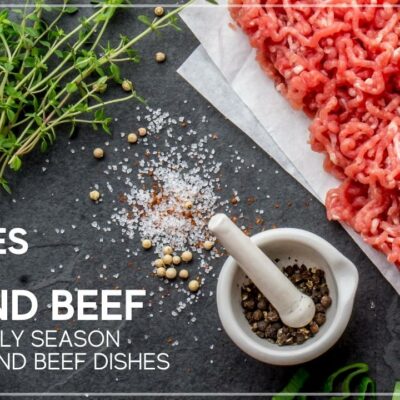
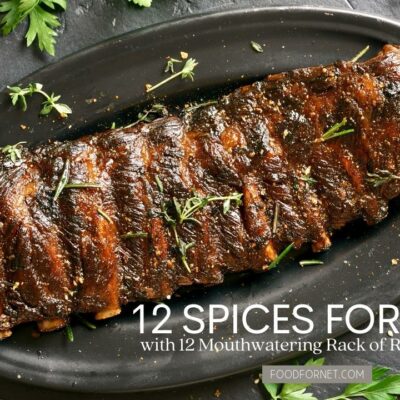
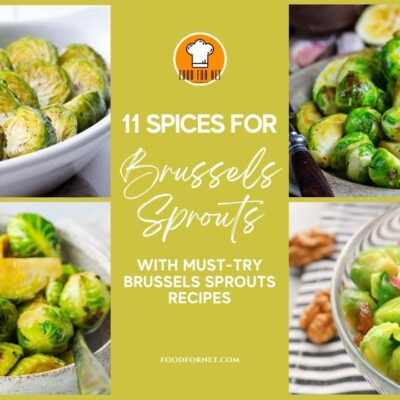








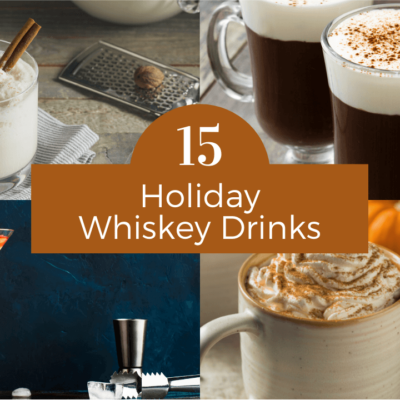



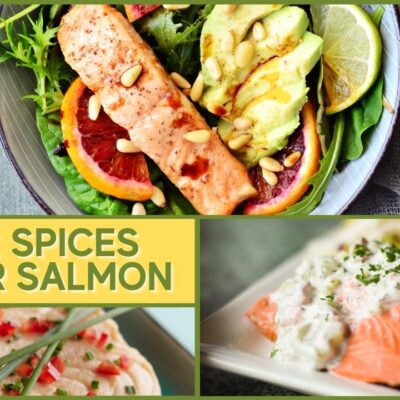
 10 Types of Mexican Vegetables with Quick and Easy Mexican Veggie Dish Ideas!
10 Types of Mexican Vegetables with Quick and Easy Mexican Veggie Dish Ideas!
Leave a Reply